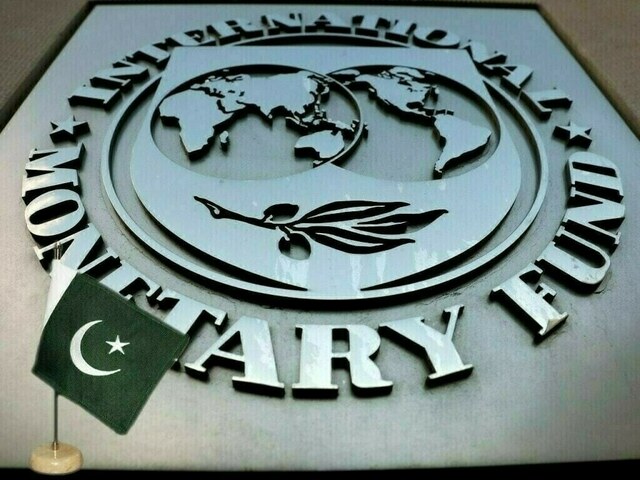ISLAMABAD: The International Monetary Fund (IMF) Executive Board on Friday completed the first review under the Extended Fund Facility (EFF) arrangement, allowing the Pakistani authorities to draw the equivalent of about $1 billion.
The Executive Board also approved the authorities request for an arrangement under the Resilience and Sustainability Facility (RSF), which will support Pakistan’s efforts in building economic resilience to climate vulnerabilities and natural disasters, with access of around $1.4 billion.
The Fund issued a statement which noted the Executive Board of the IMF completed the first review of Pakistan’s economic reform program supported by the EFF Arrangement.
This decision allows for an immediate disbursement of around $1 billion (SDR 760 million), bringing total disbursements under the arrangement to about $2.1 billion (SDR 1.52 billion). In addition, the IMF Executive Board approved the authorities’ request for an arrangement under the Resilience and Sustainability Facility (RSF), with access of about US$1.4 billion (SDR 1 billion).
Pakistan’s 37-month EFF was approved on September 25, 2024, and aims to build resilience and enable sustainable growth. Key priorities include (i) entrenching macroeconomic sustainability through consistent implementation of sound macro policies, including rebuilding international reserve buffers and broadening of the tax base; (ii) advancing reforms to strengthen competition and raise productivity and competitiveness; (iii) reforming SOEs and improving public service provision and energy sector viability; and (iv) building climate resilience.
Pakistan’s policy efforts under the EFF have already delivered significant progress in stabilizing the economy and rebuilding confidence, amidst a challenging global environment. Fiscal performance has been strong, with a primary surplus of 2.0 percent of GDP achieved in the first half of fiscal year 2025, keeping Pakistan on track to meet the end-fiscal year 2025 target of 2.1 percent of GDP. Inflation fell to a historic low of 0.3 percent in April, and progress on disinflation and steadier domestic and external conditions, have allowed the State Bank of Pakistan to cut the policy rate by a total of 1100 bps since June 2025. Gross reserves stood at $10.3 billion at end-April, up from $9.4 billion in August 2024, and are projected to reach $13.9 billion by end-June 2025 and continue to be rebuilt over the medium term.
The RSF will support the authorities’ efforts to reduce vulnerabilities to natural disasters and to build economic and climate resilience. The authorities’ program: (i) prioritizes resilience to natural disasters and strengthen public investment processes at all levels of government; (ii) makes the use of scarce water resources more efficient, including through better pricing; (iii) strengthens coordination of natural disaster response and financing between federal and provincial governments; (iv) improves the information architecture, for and disclosure of, climate-related risks by banks and corporate; and (v) supports Pakistan’s efforts to meet its mitigation commitments and reduce related macro-critical risks.
Following the Executive Board discussion, Nigel Clarke, Deputy Managing Director and Chair, made the following statement:
“Pakistan has made important progress in restoring macroeconomic stability despite a challenging environment. Since the approval of the Extended Fund Facility, the economy continues to recover, with inflation sharply lower and external buffers notably stronger. Risks to the outlook remain elevated, however, particularly from global economic policy uncertainty, rising geopolitical tensions, and persistent domestic vulnerabilities. Against this backdrop, the authorities need to maintain sound macroeconomic policies and accelerate reforms to safeguard the macroeconomic gains and underpin stronger and sustainable, private sector-led medium-term growth.
Copyright Business Recorder, 2025


